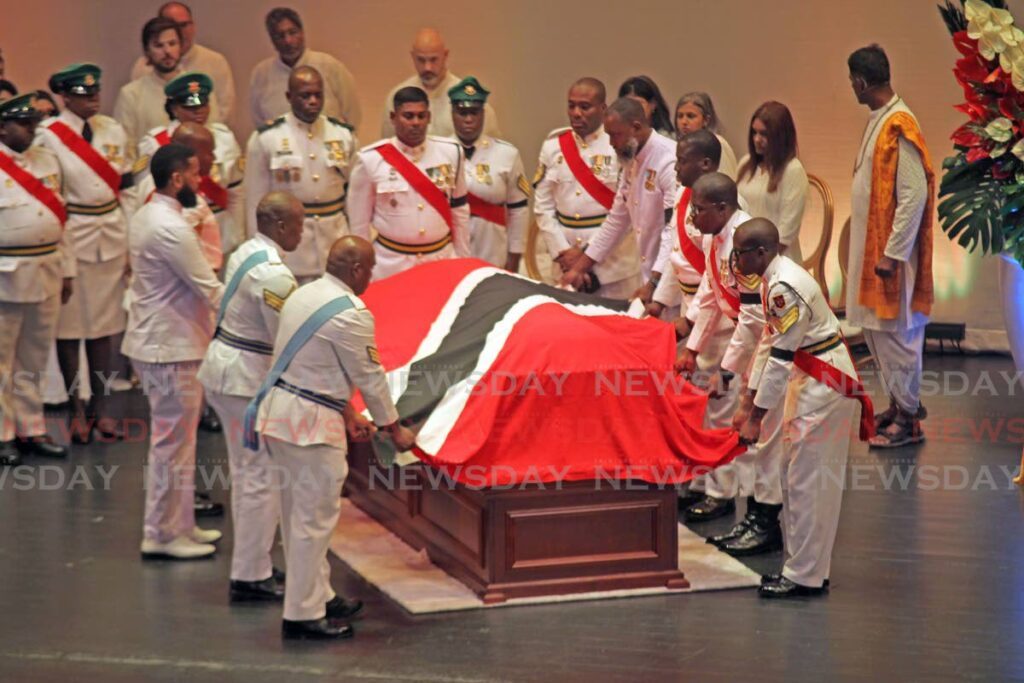Honouring former PMs

IT ENDED with prayer and fire. Tuesday’s state funeral for Basdeo Panday, 90, was a showcase of the range of roles he played.
The powerful and emotional tribute paid by Mickela Panday, a daughter, was a reminder of that range. For her, Mr Panday was father. For all, he was a former prime minister who introduced the Equal Opportunity Act; the Freedom of Information Act; the Dollar-for-Dollar tertiary education programme; and the precursor to the Heritage and Stabilisation Fund. His achievements also included his holding of the national security portfolio, which saw the country’s lowest crime rates in recent memory.
A school may be renamed in his honour and a proposal to revive a stalled plan to vest him with the Order of the Republic of TT (ORTT) has been floated.
But Mr Panday’s long, storied life and the complexity of his legacy pose a challenge when it comes to how best to commemorate him.
They also highlight the need for a more consistent approach to the way we treat former prime ministers.
Even the choice of phrase “state funeral” has triggered debate, with sticklers for protocol taking to the airwaves to complain such a designation is only for a head of state. However, we live not in a monarchy but a living and breathing democracy where modern practice allows any official deemed important enough to be draped with the flag.
If families and loved ones have the final say when it comes to such state-sanctioned commemorations, it is also true there should be automatic systems, tied to public office, giving access to the legacies of all officials.
At one stage, there was a plan for a permanent museum for prime ministers. The Old Public Library in Port of Spain did not become that museum, though it now ostensibly houses the Eric Williams Memorial Collection, to which access is to a substantial degree restricted, notwithstanding a magnificent renovation of the premises overlooking the historic Woodford Square.
The papers of our leaders ought to be more widely preserved, as occurs in other countries, where official archives grant access to them after a requisite cooling-off period. Mr Panday was reported to have been penning an autobiography; such an account should be just one part of wider documentation.
While the former PM was the first Hindu to be granted a state funeral, he was not the first to be cremated. So was Dr Williams in 1981.
Incidentally, both seemingly preferred to be remembered not through monuments. In the case of Mr Panday, as the account given on Tuesday by Christine Kangaloo, the President, reminded us, the best way to pay tribute to him might be to keep alive the flame of constitutional reform.


Comments
"Honouring former PMs"